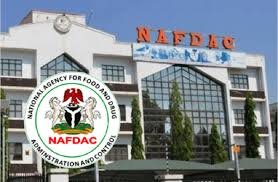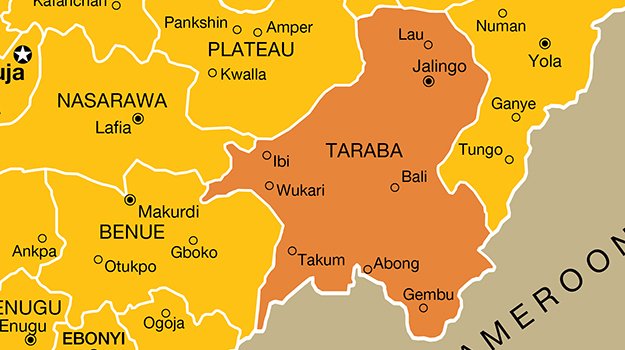NAFDAC and other key stakeholders in the food export industry which include Cocoa Processors Association of Nigeria, COPAN, have pledged to work together to prevent the rejection of processed and semi-processed cocoa products and other food exports.
This commitment was made at the NAFDAC Export Stakeholders Interactive Session in Lagos, attended by representatives from COPAN, NPNEN, LCCI, and NACCIMA. The session aimed to discuss the draft NAFDAC export regulations 2024.
Addressing the concerns raised by cocoa stakeholders regarding the draft cocoa regulations posted on NAFDAC’s website, Director General Prof. Mojisola Adeyeye allayed their fears, paving the way for a collaborative effort to ensure the smooth export of food products.
The details of the interactive session were contained in a press statement released by Sayo Akintola, NAFDAC’s Resident Media Consultant.
Prof. Adeyeye described the gathering as an “unusual meeting” as it brought together stakeholders in the export value chain to discuss critical trade facilitation issues and forge a united front for the country’s benefit.
She said the consultative meeting aimed to create a platform for open discussion, enabling NAFDAC and stakeholders to speak with one voice and work collaboratively towards addressing challenges and promoting the smooth export of food products, ultimately driving economic growth and development.
The statement read in part: “NAFDAC which is now a WHO ML3 Regulatory Agency has, under her leadership, updated and gazetted 21 new regulations covering many areas of the Agency’s regulatory activities, stressing that Export regulations is just one of the several regulations that are in the process of being gazetted into law.
“As you are all aware, often, our regulated products which are packaged, and for most of the time, exported without NAFDAC certification failed at the entry borders and reports have accumulated to put Nigeria at a disadvantage in international commerce. She said, lamenting that a few stakeholders’ products are already on the red list of some importing nations.
“Adeyeye pointed out that this has been the outcome of years of poor oversight and lack of regulatory supervision of the quality and safety components of regulated products produced, packaged and presented for export, adding that these enabling laws have placed the responsibility of regulation and control of the quality and safety of these products on NAFDAC.
“She added that NAFDAC has continued to pursue regulatory interventions at both local and international levels to ensure that the nation is not totally and completely banned from exporting any kind of food product in international commerce.
She recalled that during a similar Export Stakeholder Engagement at the Digital Bridge Institute, Lagos in May 2024, the Industry and the Regulators, including sister Government Agencies agreed to join hands to push the frontiers of regulated product export to the next level in the interest of all stakeholders and the nation at large.
“The DG however, emphasized that these regulatory interventions are critical for the survival of Nigeria’s trade across international borders where trade laws and compliance are viewed with serious evaluation.
“Today’s engagement is therefore meant to put these concerns in perspective, to bridge the knowledge gap and allay all fears to foster the necessary collaboration required to move our regulated product exports to the desired rating in international trade.
“The DG responded to the concerns raised as an outcome of the Draft Cocoa Export Regulations on NAFDAC website for public opinion by stating that NAFDAC has the statutory mandate as competent authority to certify regulated products for export, and with Laboratories suitably qualified and accredited to perform testing and certification of regulated products for export.
“She further explained that regulation of exports is not a revenue generation opportunity for NAFDAC, stating that the Agency’s regulatory role is to facilitate unimpeded trade between the exporters and the importing countries with a view to eliminating food exports rejection in the EU countries and the U.S. by adhering to international standards.
She emphasized that whatever is on the Website is not finality, adding that it’s for openness and transparency in all what the Agency does.
“Report She also assured participants that if a product for export is already registered with NAFDAC, the Agency has less work to do, stressing that companies on the Agency’s database require less visitations. The most important thing is to have confidence in your product. For us what’s most important is that your product is not rejected in the importing country.
“She disclosed that Handholding will start with Cocoa Producers based on the presumption that some of them are already registered with the Agency while those that are not registered will equally be accommodated, adding that we will look at those on our records and categorize them into Low, Medium and High Risk which requires random visitations for those that have been complying with the regulatory requirements.
“The Director General of NACCIMA, Dr Olusola Obajimu expressed joy that the proposed regulation is not necessarily a revenue generation drive, but achieving global standard to ensure that Nigeria realizes its export potential. He pledged the support of the stakeholders to ensure that the nation improves it foreign exchange revenue drive through non-oil export trade in collaboration with NAFDAC.
“Representative of COPAN and Managing Director of Multi-Trex Integrated Foods Plc, Mr. Yusuf Isiaka, said we are very happy to see signs around todays gathering that NAFDAC of today is a collaborative one. In recognition of the fact that NAFDAC has a role to play, Mr Isiaka said we just don’t want to lose business, we don’t want to lose relationships.



